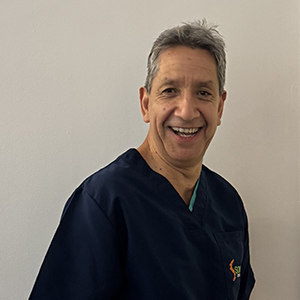
Root canal treatment (also called ‘Endodontic’) is needed when the pulp inside your tooth becomes infected through tooth decay or damaged due to an injury to your mouth. An infection that is not controlled early enough could spread through the root canal system, which could eventually lead to an abscess, causing major discomfort. If root canal treatment is not performed, you may need to have the tooth extracted. The aim of endodontic is to remove all infection from the root canal, cleaning and filling it to prevent further infection. A temporary filling is the placed in and the tooth is left to settle. Once the tooth is checked at a later date, and the infection has cleared, a permanent filling is completed.
When the nerve tissue or tooth is damaged, it allows for bacteria to multiply within the pulp of the tooth. The decay can cause an infection or an abscessed tooth, which can cause various problems, such as swelling that may spread to other areas of the face, neck, or head, or bone loss around the tip of the root.

Specialist in Endodontics
DDS
GDC No. 79953
Languages Spoken: Spanish, Swedish and English. 


“I enjoy taking on complicated and challenging referred root canal treatment cases.”
After graduating from the University of Gothenburg, Sweden in 1998, he worked as a general dentist for 2 years, and as a Clinical Instructor to undergraduate dental students from 2002 to 2004.
He pursued his interest in endodontics by taking the 3 year full time specialist training programme in Endodontics at the University of Gothenburg, he graduated in 2007 and then held a post as Endodontist at the University Clinics in Gothenburg, Sweden, working part time as a clinician as well as clinical tutor at the specialist programme in endodontics until 2013.
Eduardo Miguel has been working in the UK since 2007, taking on complicated and challenging referred root canal treatment cases. He was admitted to the UK specialist list in endodontics the same year.
Professionally Eduardo Miguel is a member of the British Endodontic Society, the European Society of Endodontology (ESE) and the Swedish Endodontic Society. He is fluent in Spanish, Swedish and English.
A root canal required one or more visits to the dentist and can be performed by a dentist on an endodontist. During your visit, we will take an x-ray to see the shape of the root canals and determine if there any signs of infection in the surrounding bone. Depending on the severity, we will discuss who may be best suited to perform the work in your particular case.
Generally, through an access hole, the tooth’s nerve and pulp, along with the bacteria and related debris, are removed and the inside of the tooth is cleaned. Depending on the circumstances, your tooth is then sealed, or medication may be put inside the tooth and sealed at a later date. Nevertheless, if the root canal is not complete on the same day, a temporary filling is placed in the exterior hole. Some additional dental work, such as crowns and posts and other restorations, may need to be placed on the tooth to protect it, prevent it from breaking and restore it to full function. However, we will discuss this at great length with you.
Although the process itself may be painless, the first few days following the completion of treatment, the tooth may feel sensitive and you may experience discomfort. This sensitivity and pain may be controlled with over-the-counter pain medication, such as Ibuprofen. Most patients can return to their normal activities the next day. It is key to maintain outstanding oral health.
Root canal treatment is highly successful and fixed teeth can last a lifetime. Nevertheless, despite best efforts to clean and seal teeth, new infections may emerge.
There are alternatives to root canal treatments, which involved tooth extractions and replacement with a bridge, implant, or removable partial denture(s) to restore chewing functionality and prevent surround teeth from moving.
Please also see our page on dental hygiene services.
“I had to have a root canal treatment and had two crowns fitted this year. Dr Leyla Packham was just wonderful. She is obviously a perfectionist and made sure all the measurements were absolutely perfect before going ahead. All the staff are highly professional and very friendly. The best dentist in the universe!”
A.P